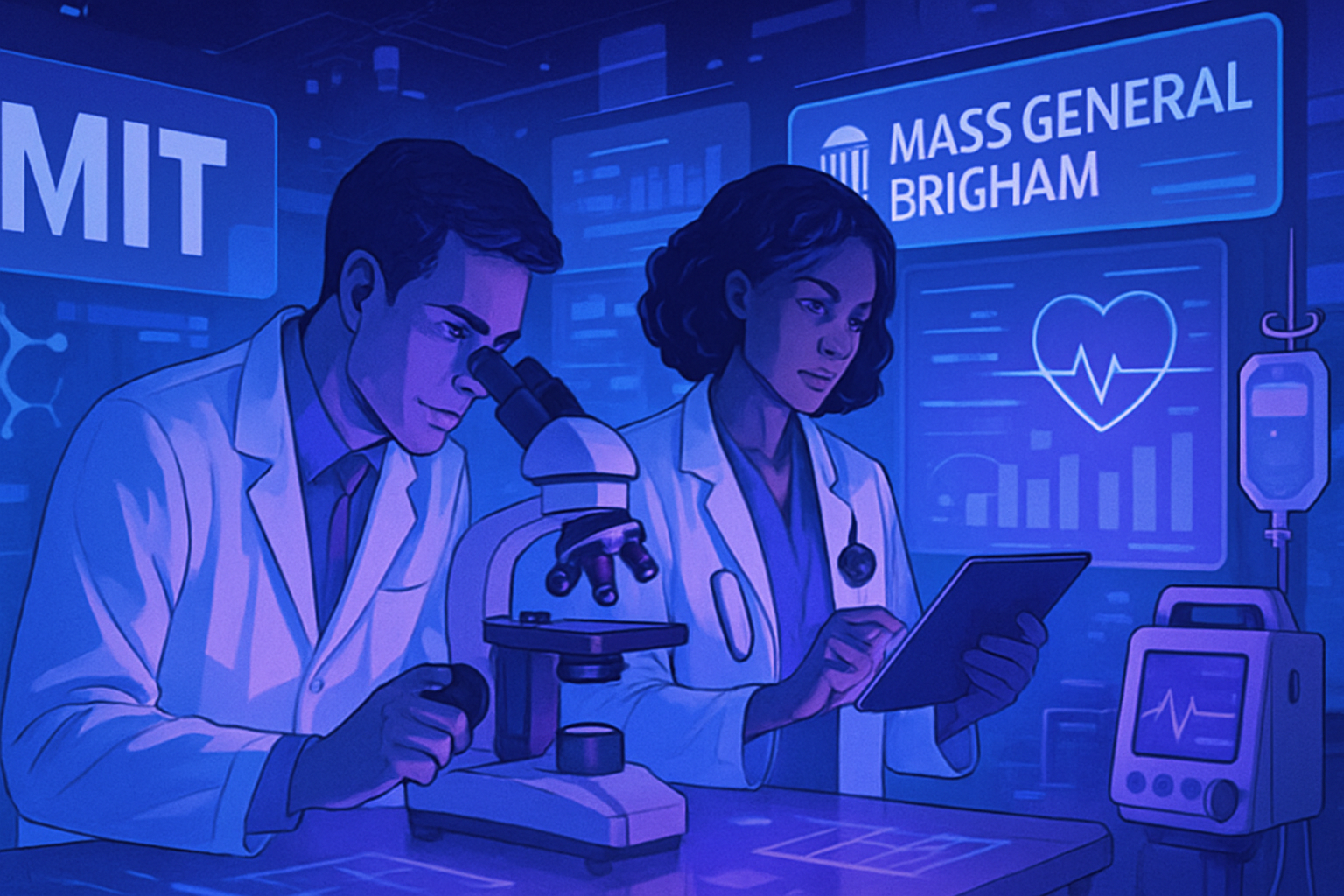MIT and Mass General Brigham, leaders in their respective fields, are joining forces to transform healthcare. This innovative partnership launches a new health innovation support program, based on joint research projects. A synergy between the rigorous science of MIT and the clinical excellence of Mass General Brigham promises to push the boundaries of treatments and diagnostics. This program embodies a unique opportunity to address urgent challenges in human health.
Collaboration between MIT and Mass General Brigham
The MIT and Mass General Brigham (MGB) recently announced the launch of the MIT-MGB Seed Program. This new initiative, made possible by the support of Analog Devices Inc. (ADI), aims to fund joint research projects conducted by researchers from both institutions. This program represents a significant advancement in the field of human health, with clear objectives: to develop next-generation therapies, diagnostic tools, and digital solutions accessible to a broad audience.
Program Objectives
The MIT-MGB Seed Program seeks to accelerate the innovations necessary to tackle pressing health issues. By bringing together interdisciplinary teams from MIT and Mass General Brigham, the program fosters groundbreaking work, leveraging expertise in artificial intelligence, machine learning, and measurement technologies. Significant advances in clinical research and patient care can thus be achieved.
Financial Support and Resources
This program will be funded by a donation from ADI, anticipating support for around six joint projects per year over three years. This funding will be distributed between the two institutions. Beyond funding, the selected teams will have access to entrepreneurial workshops to develop their ideas. These sessions will connect researchers with entrepreneurs, investors, and industry leaders, facilitating their transition from laboratory discoveries to practical applications.
Project Steps and Selection
The program will soon launch a call for proposals aimed at researchers from MIT and Mass General Brigham. The first cohort of funded projects is expected to be announced in the fall of 2025. The awardees will be chosen by a review committee composed of experts from both institutions, thus ensuring a rigorous and relevant evaluation of the submitted projects.
Impact on Health Research
According to Alex K. Shalek, head of faculties for this program, building collaborative research teams between the two institutions could address significant gaps often encountered in the field of health innovation. Clinicians can identify shortcomings in current interventions while lacking scientific and technical resources. Conversely, researchers at MIT may be unaware of these clinical challenges.
Encouragement of Innovation
The program offers a valuable opportunity for MIT researchers to tackle critical clinical problems with innovative solutions. Emery Brown, an anesthesiologist at Mass General Hospital, supports that the program will create momentum between doctors and scientists, encouraging researchers to develop new technologies.
Strategic Partner: ADI
The support of ADI highlights the growing interest in the interaction between biology, medicine, and computing. This historic partnership with MIT and Mass General Brigham underscores ADI’s commitment to transforming the patient care landscape. The convergence of these fields promises a new era of efficiency and access to medical care.
A Flagship Program
The MIT-MGB Seed Program is a flagship initiative within the MIT Health and Life Sciences Collaborative (MIT HEALS). This program illustrates the fundamental mission of MIT HEALS, aiming to establish the institution as a central hub for innovation and translation in health and life sciences.
Milestone Event
The launch of the program was celebrated at an event held at the Samberg Conference Center at MIT on March 31. This gathering emphasized the determination of both institutions to work together to advance health research.
Frequently Asked Questions about the MIT-MGB Health Innovation Support Program
What is the main objective of the MIT-MGB program?
The MIT-MGB program aims to fund joint research projects between MIT and Mass General Brigham, focusing on developing next-generation therapies, diagnostics, and digital tools to improve human health.
How are projects selected for funding?
Projects are selected by a joint review committee composed of experts from MIT and Mass General Brigham, who evaluate proposals based on their innovation potential and impact on patient care.
What types of researchers can participate in the program?
The program is open to researchers and clinicians from both institutions, thus fostering interdisciplinary collaborations that combine scientific and clinical expertise.
What role does Analog Devices Inc. play in the program?
Analog Devices Inc. supports the program through funding, enabling the initiation of approximately six joint projects per year over a three-year period, distributing resources between the two institutions.
What are the benefits of a collaboration between MIT and Mass General Brigham?
This collaboration allows for the combination of the scientific and clinical research strengths of the two institutions, facilitating the development of innovative solutions to critical health challenges.
How does the program promote innovation in health?
The program encourages teamwork by bringing together researchers and clinicians to address relevant health issues, using advanced technologies such as artificial intelligence and measurement and detection methods.
What opportunities are offered to selected teams?
The selected teams will have access to entrepreneurial workshops, some of which are hosted by The Engine, to help them transform their discoveries into real applications that can benefit patients.
When will the first cohort of funded projects begin?
The first cohort of funded projects is expected to launch in the fall of 2025.
What is the expected impact of this program on patient care?
The program is expected to lead to critical advancements in diagnostics and treatments, providing new solutions that enhance efficiency and access to care.
How does the program contribute to advancements in patient data?
It facilitates access to clinical data and samples needed for MIT researchers, enabling them to better understand and respond to clinical challenges.






